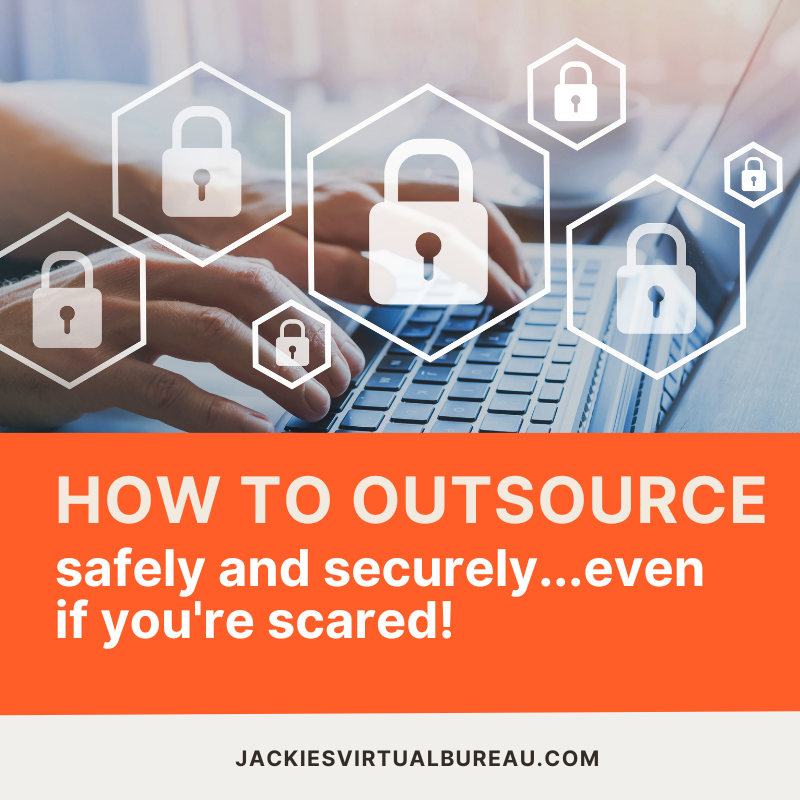How to outsource safely and securely

Tips on how to outsource safely and securely and why you don't need to be scared!
Are you scared to outsource?
Perhaps you're ready to work with a VA or freelancer but you're feeling apprehensive?
'Am I ready to do this? Am I actually going to hand over my stuff to a perfect stranger?’
Don't worry... this article should reassure you. It's good to be wary but you don't need to be scared!
You're at the start of a journey to freedom in your business
The first hurdle has already been tackled - you've found the VA you want. They are experienced and on the same page as you. They understand and respect you and your business and their values are sound. Read more about how to work with a VA or Freelancer here (and where to find one).
Your VA should also reassure you. They should demonstrate that they have the correct procedures in place so you don't need to worry about handing things over, or sharing client details, login details, passwords and so on.
How to outsource safely and securely
Don't get hung up on security. I’m not making light of it, and it is important, but nowadays we are all used to working, playing and shopping online. We regularly share our personal details, our credit card numbers, set up Direct Debits, and allow our phones, tablets and computers to store our passwords and other secure information.
So at least you should be comfortable with the basics? It's the same with your VA.
You do need to get comfortable with handing over your business documents, website and software login info, client details and letting your VA into the back end of your business and social profiles.
Of course, there are no guarantees in this life, but you need to trust your VA just like you do when you book a holiday or order expensive shoes online.

Here are some things worth discussing with your VA:
Confidentiality agreements
These should be built into the onboarding process. Your VA should be able to guarantee you that no information will be shared or used, even after the project or working relationship ends. If you have a non disclosure or confidentiality agreement, your VA should be happy to sign it. Make sure copies of signed agreements are stored ‘just in case’.
Storing login details and passwords
Some clients are paranoid about this, which is understandable. Many therapists work with clients in a confidential setting, so here the solution is to use something like LastPass (a free password manager that stores encrypted passwords online). Nothing is perfect though - I've found that it can be a pain on certain browsers.
Other clients are happy to email logins and passwords to you on the understanding that you will store them securely. I use Lastpass where the client wants it, in other cases I have a simple notebook which is locked away. The client’s page is then shredded once I no longer need it. Also make sure your passwords are unique and not obvious.
General Data Protection Regulation - the safe use of data
Your VA should have a grasp of the GDPR rules. Some (including myself) are registered with the Information Commissioner's Office (ICO). I don’t have the space to go into detail on this topic, but here are two links if you need to investigate further:
Insurance
Many VA’s will have relevant business insurance, others may not. It’s up to you to check this.
Go for it!
I hope this article has covered and reassured you about things that many clients worry about. Trust your VA - they have your back and if they're any good, they'll advise and reassure you every step of the way.